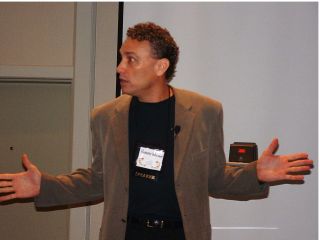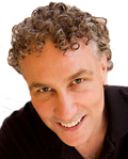Self-Esteem
Discovering the Lesson of a Long-Ago Public Speaking Course
A Personal Perspective: A public speaking class sounded fun. Boy, was I wrong.
Posted September 14, 2023 Reviewed by Abigail Fagan

I’ve written numerous times about how I was bullied as a kid. Bullying caused me to become a loner because I found it was safer to play alone. Being a loner, in turn, influenced my becoming a nonconformist. When you feel like the whole world is full of bullies, it can make you want to be anything other than the norm.
Now, as I do shadow work — a method of uncovering and healing repressed emotional wounds from our past that hold us back in the present — I realize I have a pattern of attracting bullies and narcissists into my life. Many of those bullies were probably drawn to my nonconformity because bullies tend to attack anything that is different from the status quo.
Exploring my past wounds helped me recall a nearly forgotten public speaking class I took in college 47 years ago; a class where I felt bullied by the instructor. I’m surprised I took the class at all because at the time I was a pre-med major with no conscious intention of ever speaking in public.
I believe what led me to take that class was my subconscious mind guiding me toward a lifelong goal of speaking that had yet to make itself apparent. On a conscious level, I probably took the speaking class because my friends told me it was a fun easy “A.” It turned out to be anything but!
The Class Roared in Laughter
At first, I was excited about the class. We had to give four speeches around seven minutes in length. Our first assignment was a compare and contrast speech. I had just finished reading Hunter Thompson’s book Hell’s Angels, so I gave a speech comparing and contrasting them to the fraternities and sororities on campus. The class roared in laughter. It was a thoroughly satisfying experience, until I sat down and the professor gave me a failing grade. She stated that she found my comparison offensive. I, along with the entire class, was shocked at her assessment. Later on, I learned that she was a sorority sponsor which may have explained why she was upset and how she treated me for the remainder of the course.
Our next assignment was to read a famous speech from history. I chose Winston Churchill’s "We Shall Fight on the Beaches" speech. When I got up in front of the class I read the speech in a gruff British accent. I brought a fat cigar, like those Churchill smoked, and jabbed it at the audience to emphasize the words of the moving conclusion. The class gave me a rousing standing ovation and, again, the teacher gave me an “F.” She said I was supposed to read the speech in my own voice (a requirement she never told us).
Difficult Feedback
Our next speech was to include an audio-visual aid. It could be a prop, white board, flip chart, slides on a screen, pretty much anything. I chose a prop. I had recently completed an Emergency Medical Technician (EMT) training course, and the importance of learning CPR (cardio-pulmonary resuscitation) was drilled into me. I borrowed a CPR practice dummy from the hospital where I worked, and then dressed it in some of my clothes including a ball cap on its head.
On the day of my speech, I made sure that I was the first one in the classroom. I took the dummy out of its case and sat it on the first row. Next, I asked a friend of mine to sit on its left, while I sat on its right. And, I asked the professor, in advance, to give my speech first. I instructed my friend to push the dummy out of its desk right after I said a specific phrase toward the beginning of my speech.
I opened my speech about the frequency of heart attacks, and how we need to be prepared. I then said the designated phrase, and my compatriot used her foot to push the dummy out of its seat. She misjudged the dummy’s weight and gave it a pretty good kick which caused it to lurch up into the air and fall forward on its face right in front of the lectern. It was so startling to the audience that someone screamed. It was perfect!
I rushed around the lectern, and started CPR. After about a minute or so when everyone realized what was going on, I stopped, returned to the lectern, and completed my speech on how to give CPR and why everyone should learn it. Once again I got a standing ovation from the class. And, once again the teacher gave me an "F." Her reason: I was too dramatic.
I Was Failing My College Public Speaking Class
That was three “Fs” on three speeches, and I only had one left. I could not afford any bad grades if I was to get into medical school. I met with the teacher to ask her how I could keep from failing her class.
She told me I had to make an “A” on the final speech in order to pass the class. It was to be an informative speech on a topic of our choosing and it should demonstrate confidence in the speaking skills we’d developed to date. I asked her to recommend a topic to me since I seemed to have difficulty choosing ones she liked. She suggested I give a speech on weather towers.
I knew nothing about weather towers, they had nothing to do with my major, so I spent the next week in the library reading and studying about them. I then wrote a speech following the components of an English composition paper: introduction, body, and conclusion. It was a dull subject that I didn’t dare spice up.
I Was Convinced I Failed the Final Speech
On the day of the speech, I was so nervous that I was actually shaking. I stammered and stuttered; I sweated profusely; and I clung to the sides of the lectern in a white-knuckle death grip as I read my speech word for word. By the time I read the conclusion, my throat was so dry I could barely croak out the words. Upon finishing, I walked hunch-shouldered back to my desk with my face a picture of dejection. I knew I had just failed the class. To my shock, the teacher gave me an “A,” and extolled how well I covered the subject.
In the end, I received a “B” for my final grade. I presumed that after beating the joy of speaking out me, that grade was my reward for becoming an obedient, rule-following, conformist. I was disgusted by the experience, and felt my first three speeches were the best, but the cumulative effect of the class was to suppress my desire back into the deepest recesses of my consciousness.
This post may sound like I’m bitter, but I believe my experience in that class, and the final speech incident in particular, stymied my speaking ability and discouraged my desire to speak for years. 16 years later, when I had to give a monthly speech as my neighborhood association president, I was still reading written speeches while gripping the sides of the lectern to keep from shaking.
I Discovered My Calling
However, it was during my tenure with the neighborhood association that I recognized my subconscious passion. It happened when I attended a conference dinner featuring a speaker who was funny, informative, and clearly enjoying herself immensely, (see my post: Success Is Simple When This Happens!). In that moment I was moved by a desire so powerful that I finally knew what I really wanted to do with the rest of my life.
Digging into my past to uncover the subconscious challenge that contributed to my negative character traits and limiting beliefs revealed to me how my pattern of attracting bullies likely influenced my becoming a nonconformist, and how my nonconformity only created more reasons to bully me. I've learned how to stand up to bullies, but I’m still learning to rebuild my damaged self-esteem. The shadow work continues.




